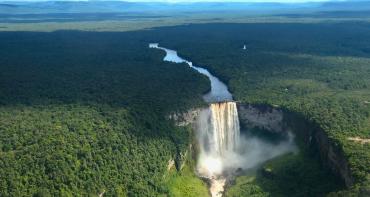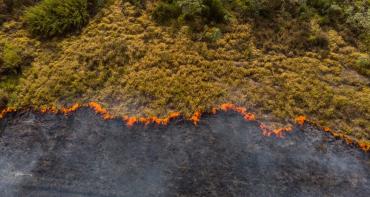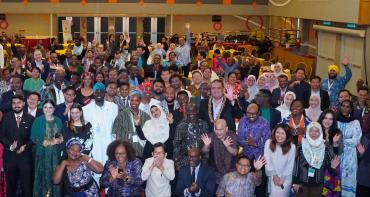“Young people are brave. Their actions, challenging political correctness and status quo, will continue to inspire, revolutionise and change the mindsets of policy-makers towards a safer, resilient and more equitable world.”

“Young people are brave. Their actions, challenging political correctness and status quo, will continue to inspire, revolutionise and change the mindsets of policy-makers towards a safer, resilient and more equitable world.”
These were the words of Karuna Rana, coordinator of the Commonwealth Youth Climate Change Network, at a Commonwealth Intergenerational Climate Dialogue at global climate talks in Marrakech.
Karuna Rana, Coordinator, Commonwealth Youth Climate Change Network sharing the the idea behind @cycn09 & what they do around #CC issues. pic.twitter.com/TO9F7PTkrX
— CWYouthClimateChange (@cycn09) November 11, 2016
The panel discussion was organised by the youth network in collaboration with the Commonwealth Secretariat, provoking exchanges between young people and representatives of governments, international organisations and civil society.
Opening the dialogue, Ms Rana stated her network’s mission as wanting to “make climate change a top priority for young people of the Commonwealth by giving them a credible platform to convene, exchange best practices, partner on new initiatives, and build their capacity to be effective advocates.”
Three Commonwealth governments - Fiji, Seychelles and Zambia – participated on the panel. Loyd Mulenga Kaziya, Zambia’s Minister of Water Development, Sanitation and Environmental Protection, encouraged young people not to shy away from governance and politics as they need to engage with leaders on climate action.
“I am delighted to say that the high number of young parliamentarians in Zambia was instrumental in the accelerating Parliament’s decision to ratify the Paris Agreement,” he noted.
Ambassador Ronald Jumeau of Seychelles made an impassioned intervention on how his government has been working with young people, saying: “Governments should not just have youth as part of their delegations but also allow them to learn and represent their countries as negotiators.”
We need to support & understand the youth to make them feel how they can be a better negotiators. Amb. Ronald #IntergenerationalDialogue pic.twitter.com/VBD40RdEQe
— CWYouthClimateChange (@cycn09) November 11, 2016
Krishneil Narayan, a young negotiator for the Fiji Government, who started as a youth climate activist over five years ago, spoke of how inclusion in the official delegation of Fiji was key in ensuring transition from being a youth activist to a climate negotiator today. The Fiji delegation at COP22 consists of five young people, each playing a role in the negotiations.
Ensuring small and vulnerable developing countries have access to climate finance through a newly established Commonwealth Climate Finance Access Hub is one of the priorities of the Commonwealth Secretariat, said Denny Lewis-Bynoe, head of climate finance and small states. “The hub, through its steering committee, will explore how to engage with young people given their importance to addressing climate change,” she said.
Group photo: #IntergenerationalDialogue #COP22 #LetsDoMore #ClimateAction #WeAreOne #ChangeIsPossible @COP22 @ClimateTracker @UNFCCC pic.twitter.com/fA3m8nqd6z
— CWYouthClimateChange (@cycn09) November 11, 2016
The discussion on 11 November marked the United Nations Framework on Climate Change (UNFCCC) assigned ‘Young and Future Generations Day’.
The Commonwealth Youth Climate Change Network first began in 2009 as an initiative to mainstream youth perspectives in the work of the Commonwealth on climate change. The network today convenes over 100 organisations and more than 600 young climate leaders, supporting these young climate leaders in their grassroots initiatives.
Media Contact:
Will Henley
Senior Communications Officer
Commonwealth Secretariat
Email: [email protected]



